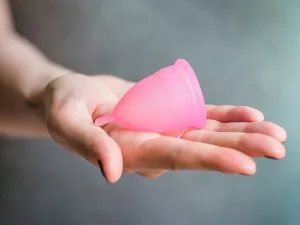During pregnancy you envision life with your newborn, sift through items for your registry, and prepare for the big day — childbirth. After long, taxing hours of labor, you may find yourself unexpectedly drained, both emotionally and physically.
A postpartum doula offers practical and emotional support during the sensitive period after your baby arrives. Below is an outline of what postpartum doulas do, the advantages of hiring one, and ways to locate a doula near you.

What is a postpartum doula?
Whether this is your first child or your fifth, the postpartum phase represents a significant adjustment for your body, your emotions, and your household. This window is often referred to as the fourth trimester — and for good reason.
While a birth doula supports you through labor and delivery, a postpartum doula focuses on providing non-medical assistance during the days and weeks following birth.
This assistance is emotional, physical, and informational. Although postpartum doulas do help with newborn care, their main attention is on the mother and her family. The International Childbirth Education Association characterizes the role as “mothering the mother.”
Postpartum doula certifications
Many doulas — both birth and postpartum — complete formal training and certification before practicing. Training can include online study or self-paced work, but most programs also require some hands-on, in-person training.
Additional expectations often include required reading, CPR certification, and finishing coursework within a set timeframe. Doulas also participate in continuing education to maintain and refresh their expertise.
You can feel confident you’re being cared for by someone prepared for the role.
What does a postpartum doula do?
The better question might be: What doesn’t a postpartum doula do?
Services vary among doulas and from one family to another. At a minimum, postpartum doulas provide guidance and practical help with infant feeding — such as breastfeeding support — as well as strategies for soothing your newborn and handling new parenting duties.
Natalie Warner Gibbs, a mother of three, recalls: “My doula had my placenta encapsulated — she collected it at the hospital and brought the capsules to my home during recovery. She also delivered a placenta print and a cord keepsake.” (A placenta print is a decorative imprint of the placenta on paper.)
Placenta encapsulation is one example of the varied services a postpartum doula might offer. “I couldn’t get my capsules quickly enough,” Warner Gibbs says. “I felt they helped stabilize my hormones and ease my anxiety.” (While scientific evidence is limited, many people report perceived benefits.)
A postpartum doula can also assist with physical and emotional recovery during the fourth trimester, and if additional help is needed, they can point you to appropriate resources and services.
Other common forms of support include:
- light household chores (tidying, vacuuming, etc.)
- preparing meals
- sharing evidence-based information on newborn and postpartum topics
- encouraging self-care
- advocating for the mother’s needs
- helping older siblings adjust
- referring families to further resources for both baby and parent
Postpartum doulas do not provide medical advice, perform medical procedures, or make medical decisions on behalf of the mother or family. Instead, they supply information, practical resources, and emotional backing — and if they can’t address a particular need, they’ll help you locate someone who can.
Related: Supporting new moms with “4th trimester care” could save lives
How much does a postpartum doula cost?
The cost for postpartum doula services varies by location and the scope of care you request.
The International Doula Institute notes that in major cities doulas typically charge between $35 and $65 per hour, while in smaller towns rates commonly range from $25 to $35 per hour.
For instance, Beth Bejnarowicz, a postpartum doula in Lake Zurich, Illinois, lists $40 per hour with a minimum booking of 10 hours.
DONA International explains that some doulas work independently while others are employed by agencies. Fees depend on total hours, time of day, and type of service — with options ranging from full-day or part-time visits to overnight and weekend care, all influencing price.
Ask up front about rates. If cost is a concern, inquire about sliding scale options or whether any insurance, community programs, or grants might help offset costs. Some families access doula care through local organizations or philanthropic support.
Benefits of hiring a postpartum doula
“I didn’t plan to use our doula after birth, but I stayed open to it,” says Amy Risher, mother of a 5-week-old who delivered during the COVID-19 pandemic. “What surprised me was how much I needed community during isolation.”
“Our doula filled that role,” Risher continues. “She answered the questions I would have asked friends, encouraged me the way my mom would, and worked to connect her clients into a supportive group of new mothers.”
Beyond creating connection in a season that can feel lonely, postpartum doulas offer additional tangible benefits.
Breastfeeding support
A case study examining a volunteer postpartum doula program found positive effects on breastfeeding outcomes.
In other research, women who had doula involvement before birth and during the postpartum period were more likely to start breastfeeding.
Though further study is needed, additional resources indicate that mothers with postpartum doulas often report greater satisfaction with breastfeeding and may continue nursing longer.
Mental health
Postpartum depression affects many new mothers. Risk factors can include:
- a prior history of depression or postpartum depression
- high levels of stress
- a limited support network
- challenges with breastfeeding
- having multiples or a baby with special needs
A postpartum doula can be a vital part of your support system — reducing stress and bolstering your confidence. They can also recognize early signs of depression and connect you with appropriate care so you receive help promptly.
Additional benefits
Portland-based doula collective ABC Doula lists extra perks of postpartum doula care, like increased milk production due to stronger oxytocin responses from feeling supported. Many mothers report greater confidence in their instincts and parenting skills.
Fathers and partners can also pick up infant care techniques more quickly with hands-on guidance.
Families working with doulas often gain a better understanding of their newborn’s cues and communication, which frequently translates into less crying and increased calm.
Related: Help! My baby won’t stop crying!
Postpartum doula vs. baby nurse
Baby nurses care for newborns in the home during the postpartum period. They might be licensed nurses or trained lay caregivers and sometimes work with infants who have special needs. Their main responsibility is meeting the baby’s medical and care needs.
Postpartum doulas, by contrast, concentrate primarily on supporting the mother, partner, and entire family. While they do help with infant care, their central aim is to bolster the mother emotionally and provide education and practical guidance to parents.
Both professions are valuable; the right choice depends on the kind of support your family prefers.
How to find a postpartum doula
Start by asking friends, family, or your provider for recommendations. There are many online directories and resources for doulas as well.
Consider searching professional organizations such as DONA International, the International Childbirth Education Association (ICEA), and the Childbirth and Postpartum Professional Association (CAPPA).
Interviewing potential doulas
When speaking with prospective doulas, you may want to ask:
- What draws you to postpartum doula work?
- Which postpartum services do you offer?
- How would you support my partner and family?
- Are you available around my due date?
- What is included in your fee and what costs extra?
- Do you have training or experience in postpartum mental health?
- What experience do you have with infant feeding, such as breastfeeding?
- Are there any limitations or restrictions I should know about?
Don’t feel obligated to hire the first doula you meet. Consider their answers and how confident and comfortable they make you feel.
Although it may sound intangible, trust your and your partner’s instincts: if you feel a connection, acceptance, and reassurance — that’s a good indication you’ve found a strong match.
Related: Everything you need to know about caring for a newborn baby
The takeaway
A postpartum doula can be an invaluable support person when your baby is born.
“Having a doula postpartum has been a lifesaver,” Risher says. “She eased so much of the strain during my recovery. I would encourage other mothers to consider doula support, pandemic or not.”
Whatever you decide, plan ahead to ensure you have a network of support as you transition into motherhood.

























Leave a Reply
You must be logged in to post a comment.